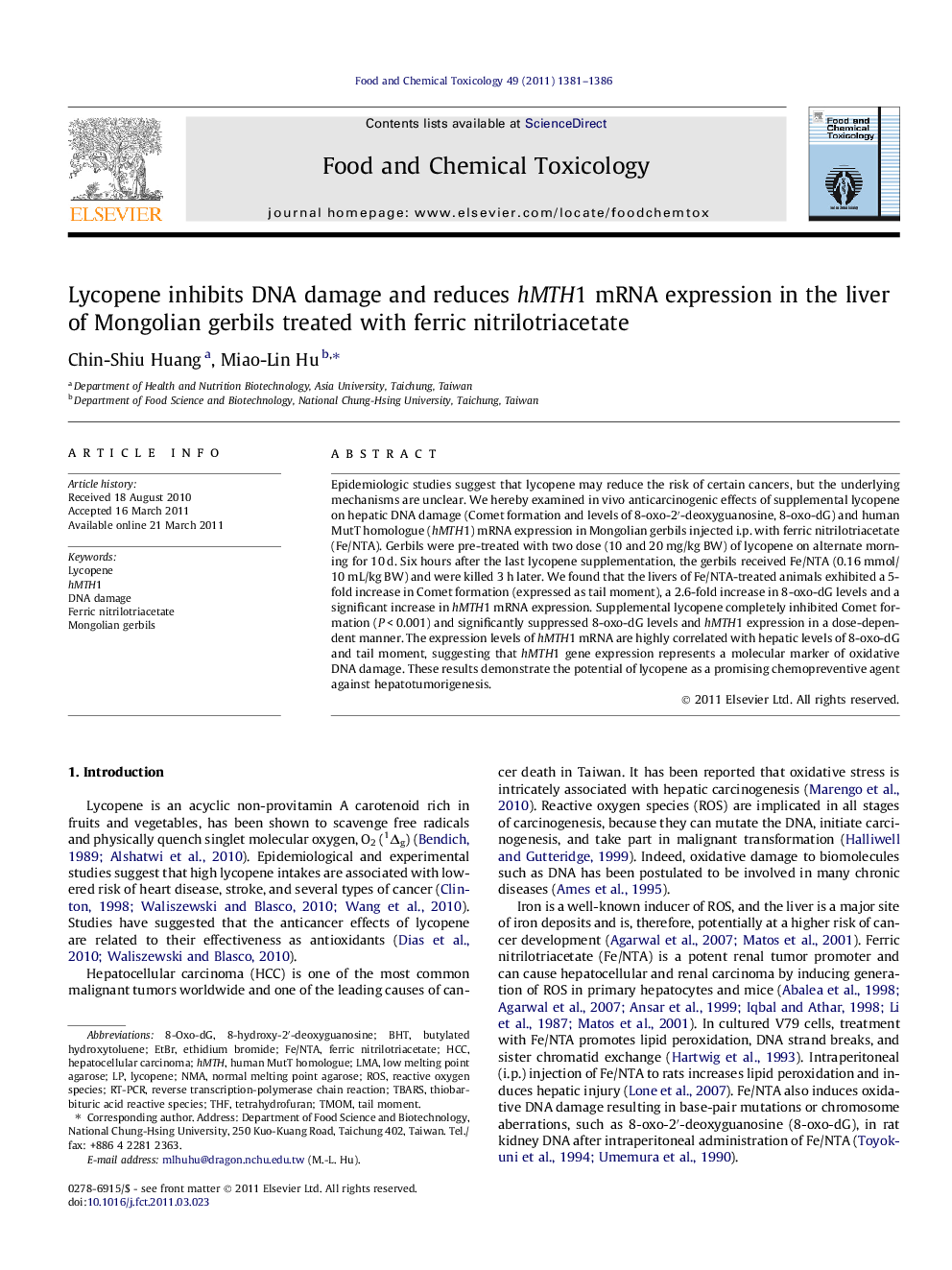| Article ID | Journal | Published Year | Pages | File Type |
|---|---|---|---|---|
| 5853452 | Food and Chemical Toxicology | 2011 | 6 Pages |
Epidemiologic studies suggest that lycopene may reduce the risk of certain cancers, but the underlying mechanisms are unclear. We hereby examined in vivo anticarcinogenic effects of supplemental lycopene on hepatic DNA damage (Comet formation and levels of 8-oxo-2â²-deoxyguanosine, 8-oxo-dG) and human MutT homologue (hMTH1) mRNA expression in Mongolian gerbils injected i.p. with ferric nitrilotriacetate (Fe/NTA). Gerbils were pre-treated with two dose (10 and 20Â mg/kg BW) of lycopene on alternate morning for 10Â d. Six hours after the last lycopene supplementation, the gerbils received Fe/NTA (0.16Â mmol/10Â mL/kg BW) and were killed 3Â h later. We found that the livers of Fe/NTA-treated animals exhibited a 5-fold increase in Comet formation (expressed as tail moment), a 2.6-fold increase in 8-oxo-dG levels and a significant increase in hMTH1 mRNA expression. Supplemental lycopene completely inhibited Comet formation (PÂ <Â 0.001) and significantly suppressed 8-oxo-dG levels and hMTH1 expression in a dose-dependent manner. The expression levels of hMTH1 mRNA are highly correlated with hepatic levels of 8-oxo-dG and tail moment, suggesting that hMTH1 gene expression represents a molecular marker of oxidative DNA damage. These results demonstrate the potential of lycopene as a promising chemopreventive agent against hepatotumorigenesis.
